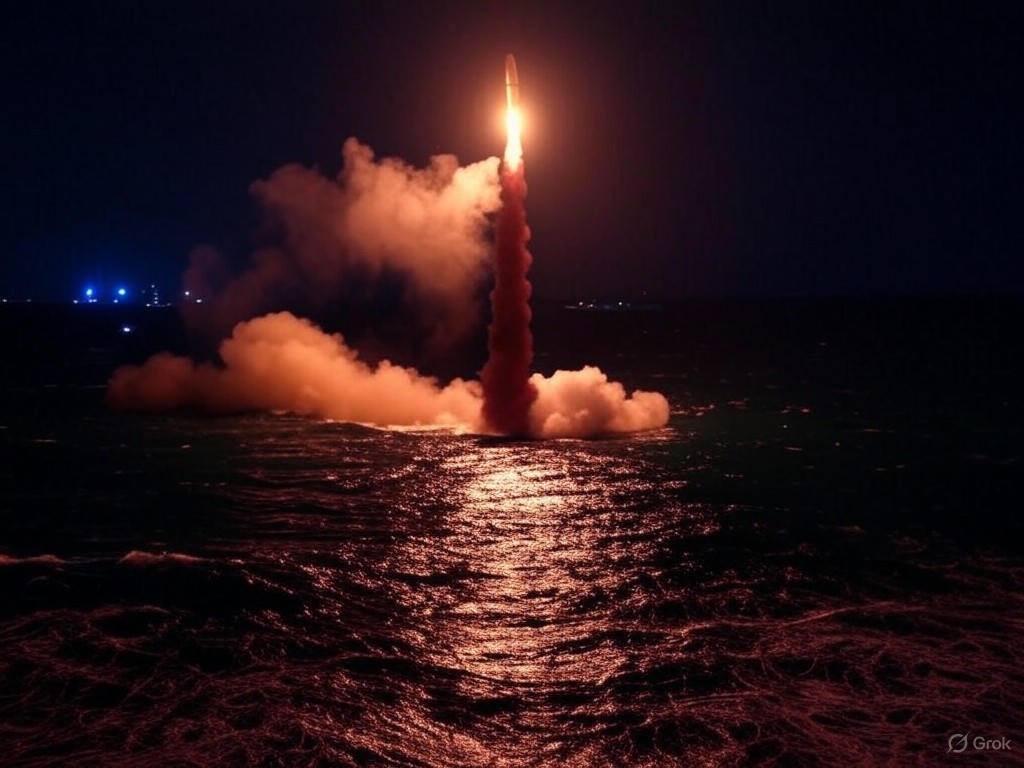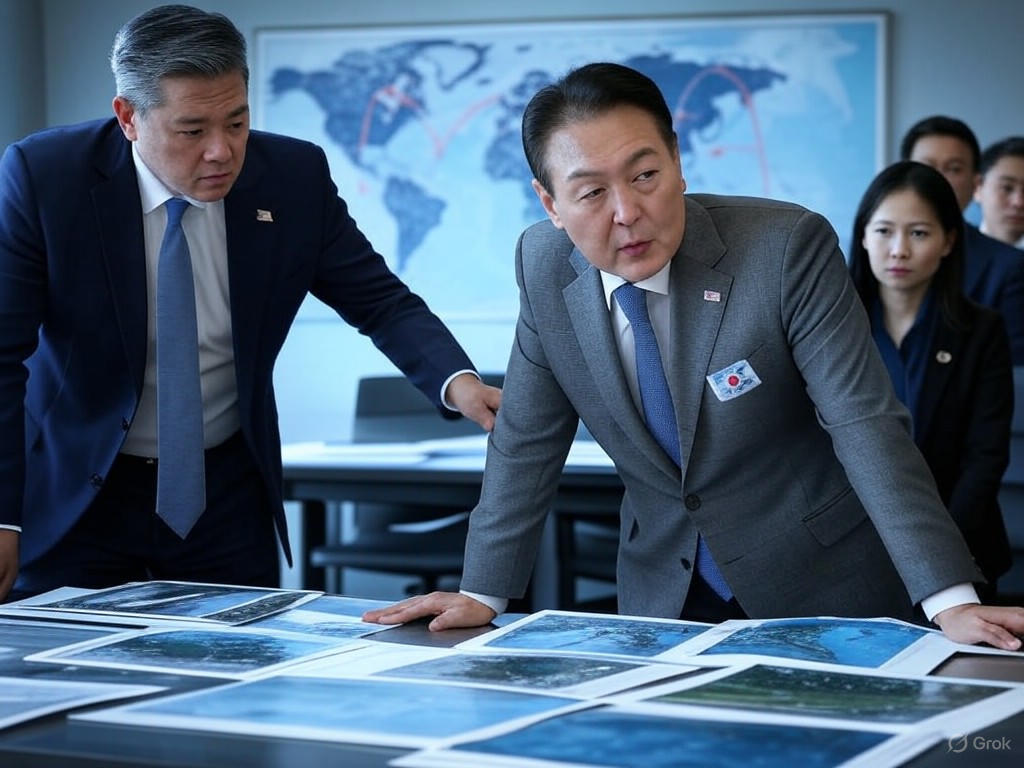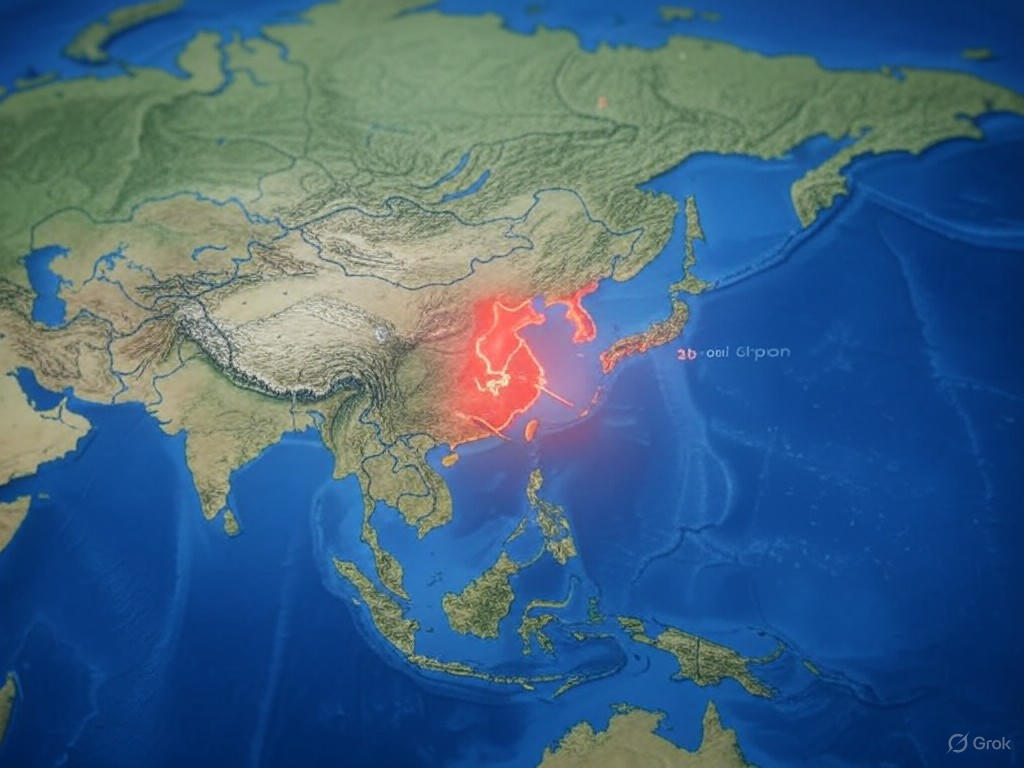North Korea’s Missile Tests: Asia’s Security at Risk
As Marcus Twyne, I’ve always found irony in the way nations play their high-stakes games of geopolitical chess, often with more bluster than foresight. Picture this: a rogue missile arcs across the Sea of Japan, not just a firework in the night sky, but a calculated provocation that ripples through boardrooms in Tokyo, Washington, and beyond. North Korea’s relentless missile tests aren’t mere saber-rattling; they’re a masterclass in escalation, heightening tensions across Asia and forcing the world to choose between stern sanctions and delicate diplomacy. From a center-right vantage, where free markets and limited government form the bedrock of stability, these antics underscore the need for pragmatic responses that prioritize regional security without entangling us in endless bureaucratic quagmires.
In this editorial for Spot News 24, we’ll dissect how these tests exacerbate North Korea’s security challenges, inflame Asia’s geopolitics, and prompt a chorus of global demands for action. Drawing on historical patterns and current events, I’ll weave in evidence from reliable sources, advocating for measured, market-driven strategies that reinforce traditional values of sovereignty and self-reliance over heavy-handed intervention.
The Rising Tide of Tensions in Asia
Asia’s geopolitical landscape has long been a delicate balance of power, where ancient rivalries meet modern technology. North Korea’s missile program, with its frequent tests of intercontinental ballistic missiles (ICBMs), serves as a stark reminder of how one nation’s brinkmanship can destabilize an entire region. Since early 2022, Pyongyang has conducted over 100 missile launches, many of which violate United Nations resolutions and send shockwaves through neighboring states Wall Street Journal, "North Korea's Missile Barrage Tests Global Patience". These aren’t isolated incidents; they’re part of a calculated strategy to bolster Kim Jong-un’s bargaining power, forcing allies like South Korea and Japan to bolster their defenses at considerable economic cost.

This image captures a North Korean missile streaking across the sky, symbolizing the unpredictable volatility that keeps Asian nations on high alert and underscores the urgent need for coordinated responses.
The escalation is palpable. Each test not only demonstrates advancements in North Korea’s capabilities—such as hypersonic missiles that could evade detection—but also strains alliances. For instance, the U.S.-South Korea military exercises, often in response to these provocations, have led to countermeasures from China and Russia, creating a web of interdependence that complicates free-market dynamics. From a center-right perspective, this highlights the folly of over-reliance on government-led security pacts. Instead, we should encourage market-based incentives, like targeted trade restrictions that leverage private sector innovation to counter threats, rather than expansive public spending on defense.
Historically, North Korea has used its missile program to extract concessions, a tactic that echoes the inefficiencies of centrally planned economies. Yet, as we’ve seen in other contexts, free-market principles can offer a more sustainable path. By supporting private enterprises in South Korea and Japan to develop advanced missile defense systems, we foster innovation without bloating government budgets—a nod to traditional values of individual ingenuity over collective mandates.
Analyzing the Global Backlash: Sanctions and Diplomatic Maneuvers
The international community’s response to North Korea’s actions has been a mix of outrage and opportunism, with calls for renewed sanctions echoing through the halls of the United Nations. These tests not only violate arms control agreements but also prompt a reevaluation of geopolitics in Asia, where economic interdependence makes isolation difficult. Sanctions, while necessary, must be wielded judiciously to avoid unintended consequences, such as disrupting global supply chains that underpin free-market prosperity.
Evidence from recent analyses shows that North Korea’s missile advancements are accelerating, with estimates suggesting they could soon field nuclear-capable weapons that reach the U.S. mainland Council on Foreign Relations, "North Korea’s Weapons Program: A Growing Threat". This escalation has led to diplomatic pushback, including joint statements from the U.S., Japan, and South Korea demanding denuclearization. Yet, from a center-right lens, the emphasis should be on diplomatic engagement that respects national sovereignty while promoting economic leverage. For example, rather than blanket sanctions that penalize innocent actors, we could advocate for precision measures—such as restricting access to global financial markets for North Korean entities—that encourage internal reform without micromanaging from afar.
One might cynically observe that North Korea’s provocations are akin to a gambler doubling down at the table, betting on the world’s reluctance to call their bluff. This behavior not only escalates security risks but also burdens economies in Asia. Japan, for instance, has ramped up its defense spending, projected to hit $50 billion annually by 2027, as reported in a detailed breakdown BBC News, "Asia's Arms Race: North Korea's Role in Regional Tensions". Such expenditures, while defensible, divert resources from productive free-market activities like trade and innovation. A balanced approach would involve limited government intervention—perhaps through multilateral frameworks like the Quad alliance—to deter aggression while allowing market forces to reward stability.

This depiction of U.S. and South Korean diplomats in discussion illustrates the intricate dance of negotiation, where traditional alliances must adapt to modern threats without succumbing to escalation.
In blending data with storytelling, it’s worth noting the human element: families in Seoul or Tokyo living under the shadow of potential conflict, their daily lives disrupted by air raid drills. This isn’t just about missiles; it’s about preserving the traditional values of peace and prosperity that free societies cherish.
Evidence and the Path Forward: A Case for Prudent Engagement
To ground this discussion in evidence, let’s examine key data points. North Korea’s missile tests have increased by 50% since 2021, according to UN reports, with each launch incorporating advanced technologies like solid-fuel engines that reduce preparation time Arms Control Association, "North Korea's Missile Developments: Timeline and Implications". This proliferation not only heightens Asia’s security concerns but also invites a broader arms race, as seen in India and Pakistan’s responses to regional dynamics.
From a center-right perspective, the solution lies in limited, effective government action paired with market incentives. Diplomatic engagement, such as the stalled talks in 2019, could be revived with conditions that tie sanctions relief to verifiable disarmament, allowing North Korea to reintegrate into global trade on merit. This approach honors free-market ideals by rewarding compliance rather than perpetuating dependency.
Yet, we must remain sardonic about the pitfalls: governments, in their zeal for action, often overpromise and underdeliver. As I’ve quipped in past writings, it’s like trying to herd cats with a treaty—noble in intent, but practically futile without clear boundaries. The evidence suggests that when sanctions are smartly applied, as in the case of Iran’s nuclear deal, they can spur negotiations without crippling economies Reuters, "Lessons from Global Sanctions: North Korea Comparisons".
Conclusion: Steering Toward Stability
In closing, North Korea’s missile tests are more than a nuisance; they’re a catalyst for rethinking geopolitics in Asia, demanding a blend of resolve and restraint. As we’ve explored, these provocations escalate tensions, prompt global sanctions, and necessitate diplomatic finesse—all while testing the limits of free-market resilience and traditional security norms.
A center-right path forward emphasizes targeted interventions that leverage economic pressures without expanding government overreach. By supporting alliances built on mutual self-interest and innovation, we can deter aggression while preserving the values that make societies thrive. Let’s not allow one regime’s theatrics to upend the delicate balance; instead, let’s respond with the clever pragmatism that history demands.
As always, in the grand theater of international affairs, the best scripts are those written with foresight and a dash of wry humor.

This map outlines critical hotspots in Asia, from the Korean Peninsula to the South China Sea, serving as a visual reminder of the interconnected threats posed by North Korean actions.

